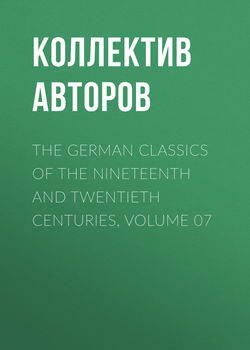Читать книгу The German Classics of the Nineteenth and Twentieth Centuries, Volume 07 - Коллектив авторов, Ю. Д. Земенков, Koostaja: Ajakiri New Scientist - Страница 6
GEORG WILHELM FRIEDRICH HEGEL
THE PHILOSOPHY OF LAW (1832)
THE CONSTITUTION
THE EXECUTIVE
ОглавлениеThe main point upon which the function of the government depends is the division of labor. This division is concerned with the transition from the universal to the particular and the individual; and the business is to be divided according to the different branches. The difficulty lies in harmonizing the superior and the inferior functions. For some time past the main effort has been spent in organizing from above, the lower and bulky part of the whole being left more or less unorganized; yet it is highly important that it should become organic, for only thus is it a power and a force; otherwise it is but a heap or mass of scattered atoms. Authoritative power resides only in the organic state of the particular spheres.
The State cannot count on service which is capricious and voluntary (the administration of justice by knights-errant, for instance), precisely because it is capricious and voluntary. Such service presupposes acting according to subjective opinion, and also the possibility of neglect and of the realization of private ends. The opposite extreme to the knight-errant in reference to public service would be the State-servant who was attached to his task solely by want, without genuine duty and right.
The efficiency of the State depends upon individuals, who, however, are not entitled to carry on the business of the State through natural fitness, but according to their objective qualification. Ability, skill, character, belong to the particular nature of the individual; for a particular office, however, he must be specially educated and trained. An office in the State can, therefore, be neither sold nor bequeathed.
Public service demands the sacrifice of independent self-satisfaction and the giving up of the pursuit of private ends, but grants the right of finding these in dutiful service, and in it only. Herein lies the unity of the universal and the particular interests which constitutes the concept and the inner stability of the State.
The members of the executive and the officials of the State form the main part of the middle class which represents the educated intelligence and the consciousness of right of the mass of a people. This middle class is prevented by the institutions of sovereignty from above and the rights of corporation from below, from assuming the exclusive position of an aristocracy and making education and intelligence the means for caprice and despotism. Thus the administration of justice, whose object is the proper interest of all individuals, had at one time been perverted into an instrument of gain and despotism, owing to the fact that the knowledge of the law was hidden under a learned and foreign language, and the knowledge of legal procedure under an involved formalism.
In the middle class, to which the State officials belong, resides the consciousness of the State and the most conspicuous cultivation: the middle class constitutes therefore the ground pillar of the State in regard to uprightness and intelligence. The State in which there is no middle class stands as yet on no high level.
